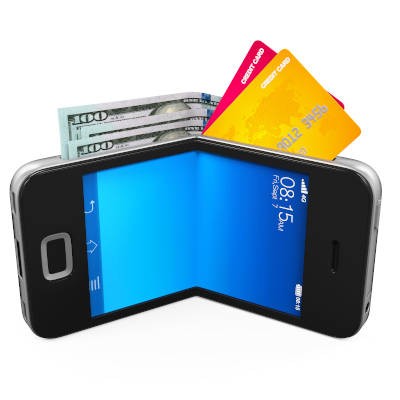Directive Blogs
Digital Wallets In the Age Of Coronavirus
New York State recently joined a number of other states in prohibiting businesses from enacting a cash-free policy. A cash-free policy means a business can refuse to accept cash or even charge a ‘service’ fee for taking cash. There was significant pushback against businesses having no cash policies and the measure failed. However, as the world focuses on hygiene, specifically hand-washing or avoiding shaking hands, reducing the exchange of cash could be seen as a good thing. Perhaps it’s time to reconsider the benefits of a cash-free environment.
How Dirty is Money?
Your money is dirty. The question is, how dirty? In 2017 researchers swabbed $1 bills from New York City and found hundreds of species of microorganisms. Due to COVID-19, concerns about hygiene are being propelled as coronavirus increasingly becomes top of mind. In this environment, discussions about using personal hygiene to reduce exposure have reached a tipping point. Moreover, this urgency is prompting individuals to consider innovative methods to migrate their level of risk to contracting the coronavirus. Key to reducing exposure is keeping your hands clean by washing your hands and avoiding touching your face.
Medical masks are selling for hundreds of dollars on Amazon and other online retailers as individuals price gouge. There’s even been reports of scammers using the fear of coronavirus to scam concerned people. These scams often utilize social engineering techniques to fool their victims. Here’s a quick video to give you tips to prevent being the victim of a coronavirus scam.
In a world where using hand sanitizer before and after you shake hands (if you shake hands at all) has become the norm, then maybe it is time to stop handling unwashed pieces of paper to pay for a purchase. A digital wallet may assist in reducing physical contact needed to spread the disease by reducing or even eliminating the need to handle cash.
What is a Digital Wallet?
Digital wallets or e-wallets are apps on your smartphone where you store your financial credentials such as debit and credit cards. Once stored, you can use your phone to make purchases as if you had your physical wallet. Instead of having to fish out your credit or debit card and either hand it to the salesperson or scan it yourself, with a digital wallet, all you have to do is place your phone near the register to make a purchase.
There are three major wallet providers: Google Pay, Apple Pay and Samsung Pay. These apps are usually pre-installed on their respective smartphones. However, they are not interchangeable. For example, only Apple phones can use Apple Pay, and only Samsung phones can use Samsung Pay. Google Pay will work on any Android phone and iPhone. You can also download other apps, such as those linked to your bank and merchant accounts.
How to Use a Digital Wallet
Using a digital wallet to make payments is simple and uncomplicated regardless of which platform you use.
Load up the app while in the checkout line. Touch your phone to the checkout terminal and you’re done. One thing to consider if you’re in a location which hasn’t fully embraced digital wallets, Samsung Pay is the only service which uses MST (Magnetic Secure Transmission), a Samsung patented feature, which allows your phone to be used to make a payment on an older terminal (one which requires a physical strip) which does not support NFC.
Benefits of Digital Wallets
Scammers are constantly looking for and have even found a new hacking technique that can guess credit card information in seconds due to the ability to bypass the CVV code which secures your card. There are scams which steal your credit card information by installing fake terminals called payment card skimmers. These skimmers look like legitimate card readers and are placed in ATMs, gas stations and other locations. When a person uses the terminal, their credit/debit card information is stolen.
Digital wallets don't provide any of your financial information when you pay, even to the vendor. This makes it more secure than traditional credit or debit card transactions which do provide this information. Further, unlike physical credit cards and of course cash, there’s no person-to-person contact when payment occurs, removing one area of possible transmission of the coronavirus.
Now’s Not the Time to Panic
While coronavirus is top of mind these days, a true test of good technical advice is whether or not it still holds after the crisis has passed. Best practices to fight cyberattacks such as spam and virus email protection are just as valid during a crisis as they are after it is over. Having a business continuity plan in place is critical to your business’ long term viability, whether or not you need to close your business for two weeks due to coronavirus concerns or hurricane season. Finally, digital wallets offer a wide range of benefits to the consumer, regardless of the current advantage they may offer in regards to exposure to the coronavirus.
The question you have to ask yourself as a business owner is if you are prepared not just for the current events, but for the long-term events which come with the territory running a business. Modern business practices such as allowing your team to work from home, webinars, video conferences can help mitigate the stress coronavirus brings into your workforce. If you're unsure of your readiness and you want more assistance in preparing your business for any kind of disaster, reach out to the professionals at Directive by calling 607.433.2200.


